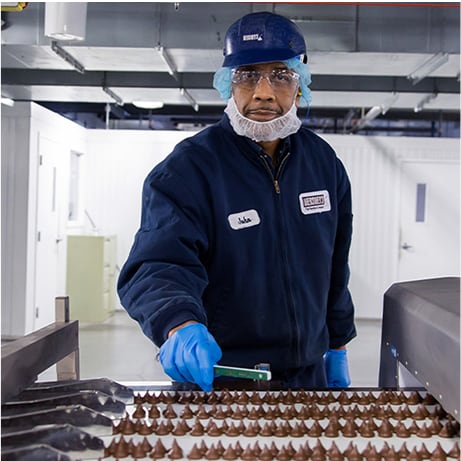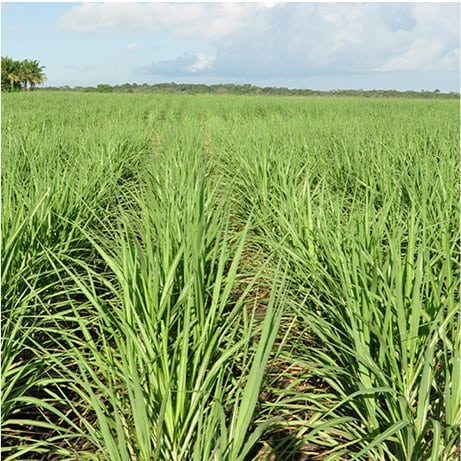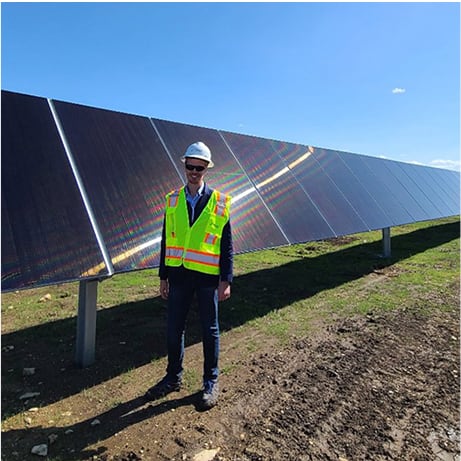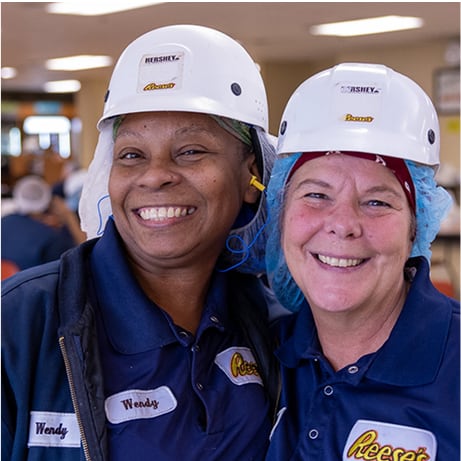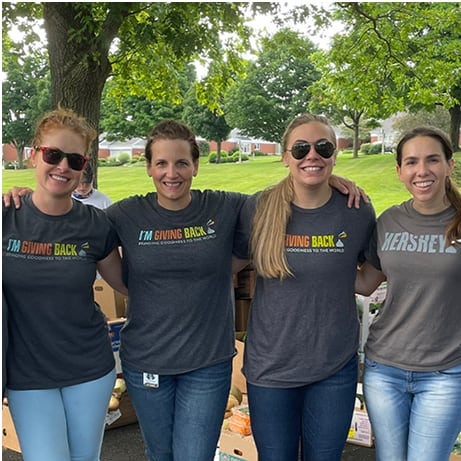Cocoa
Cocoa is one of Hershey’s most important ingredients, used in many of the products our consumers love.
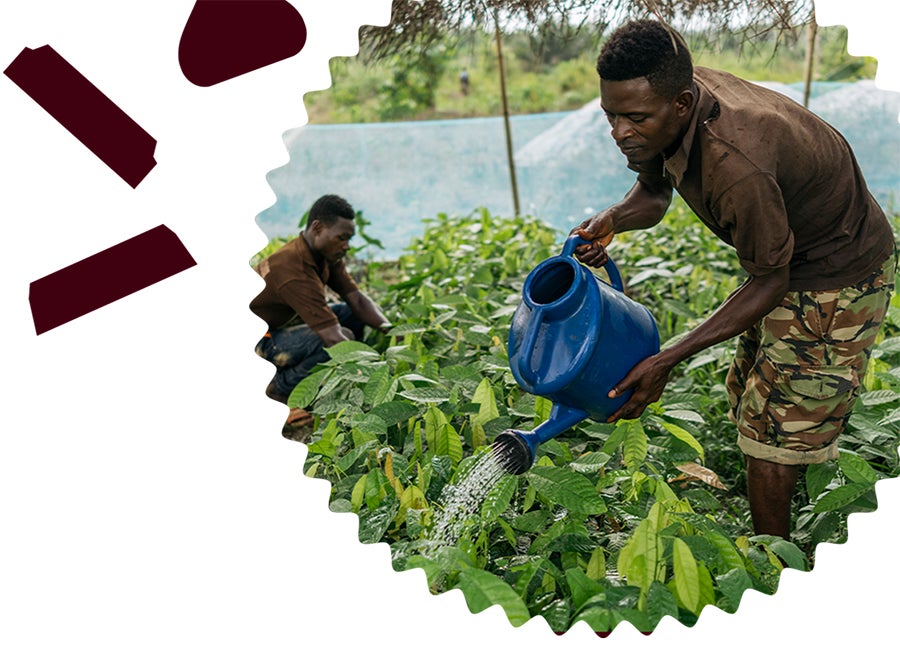
Our aspiration is to achieve a more resilient cocoa value chain by strengthening cocoa farming communities and families and co-creating the support needed for farmers to improve cocoa farming. To achieve this, we collaborate with a range of stakeholders through Cocoa For Good, our approach to creating a resilient future by tackling systemic social and environmental challenges.
Cocoa For Good is backed by Hershey’s 12-year, $500 million investment in contributing to a cocoa supply chain where farmers and their families can prosper. Supporting the people who make our products possible means creating solutions that recognize the realities many cocoa farmers face today. Our programs aim to:
- Improve farmer livelihoods
- Support children’s well-being
- Protect the environments in which cocoa grows
Latest Cocoa Stories and Updates
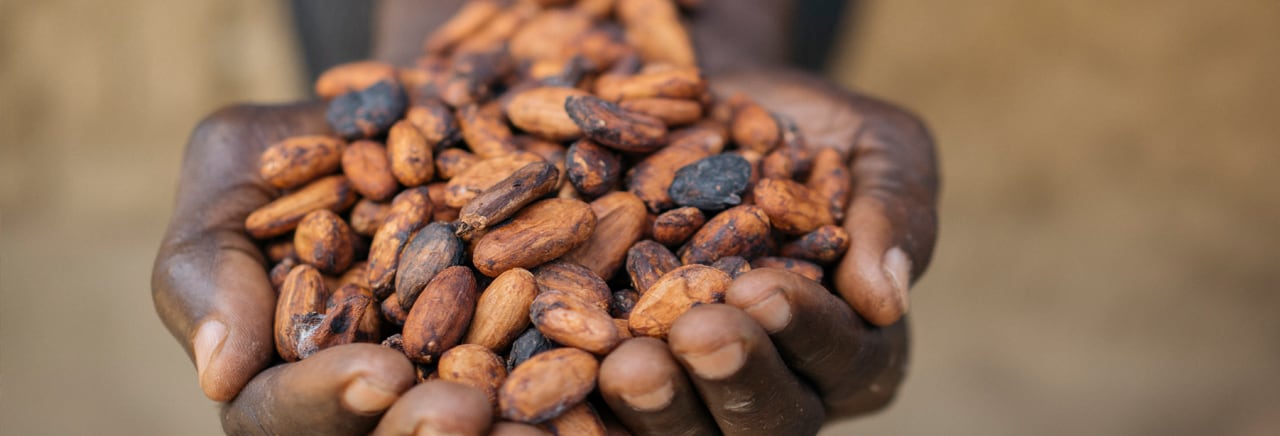
In my years in this industry, I've never witnessed a cocoa market quite like the one we're experiencing today.
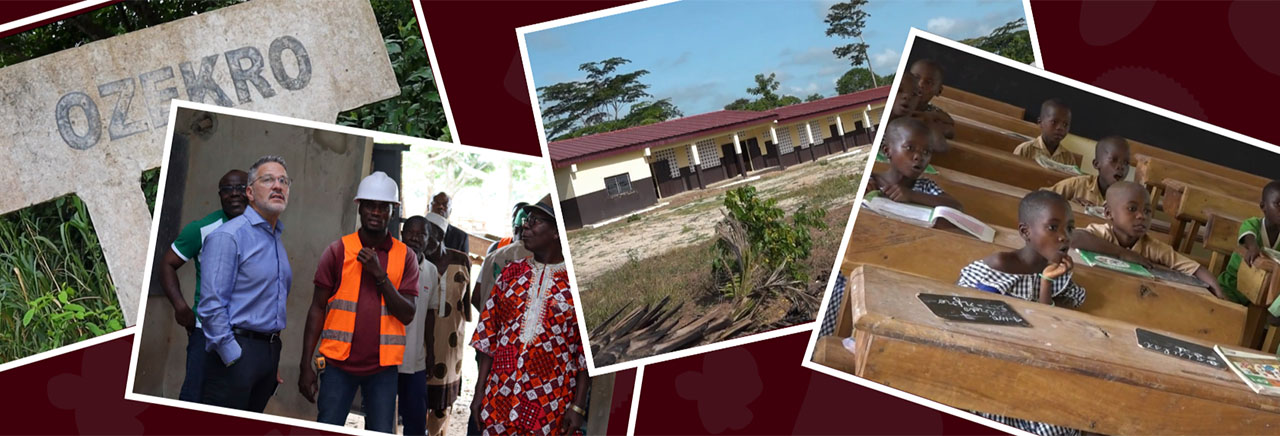
Since our founding 130 years ago, Hershey has continued work to expand the education system in cocoa-farming communities in West Africa.
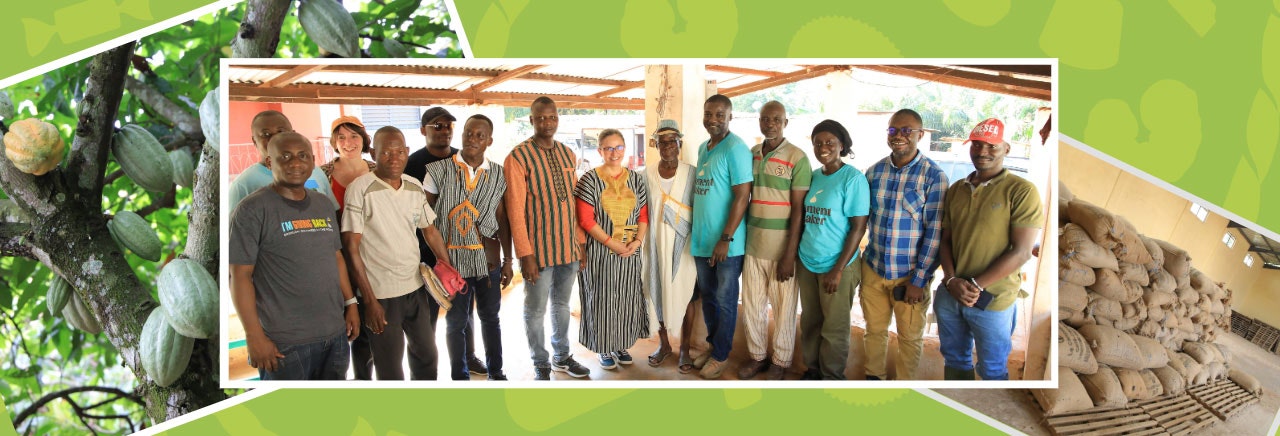
Since our founding 130 years ago, Hershey has supplied chocolate lovers with moments of goodness from our iconic treats.
Latest Cocoa Stories and Updates
Improving Farmer Livelihoods
We believe that cocoa farmers deserve the opportunity to earn a living income. In April 2023, Hershey launched the Hershey Income Accelerator Program (HIAP) in Côte d’Ivoire, which provides cash incentives to farmers participating in the program. The program provides professional support to cooperatives, rewards families for positive actions at home, and incentivizes cocoa farmers to adopt good agricultural and environmental practices and increase cocoa traceability.
Here is how it works:
- Coaches and cocoa farmers co-create tailored farm enterprise plans (FEPs) that are individualized at the farmer, farm and family level. This plan prioritizes actions that improve cocoa yields
- Specialized coaches closely engage with cocoa farming households on how to prioritize financial decisions and improve cash flow management
- Farmers who prove they follow their tailored FEP, adopt sustainable farm practices and send their children to school receive cash incentives
- Family members are encouraged to participate in Village Savings and Loan Associations (VSLAs). VSLAs are also open to all people living in the community
- Cooperatives receive expert financial and entrepreneurial skill building support
As part of our commitment to continuous improvement, Hershey commissioned an independent progress report from Wageningen Social & Economic Research (WSER). The report covers the journey from launch to May 2025, outlining strategic, operational, and learning recommendations to enhance the effectiveness and sustainability of HIAP. Discover how we are turning insights into action.
Hershey Income Accelerator Progress Briefing - (English, French)
Supporting Children’s Well-being
Hershey works with many stakeholders to seek the opportunities children deserve.
Educational Infrastructure Investment
Research shows that communities with better access to education have fewer children working to support family farms. High-quality school infrastructure is key to creating a safe, protective and attractive environment where children can learn.
Together with Côte d’Ivoire’s National Oversight Committee of Actions Against Child Trafficking, Exploitation and Child Labor (CNS) and the International Cocoa Initiative (ICI), we are building educational infrastructure in West Africa to support children who lack sufficient access to quality education. Seventeen new schools will be constructed under this agreement.
In addition to our direct school construction efforts, we are partnering with the Jacobs Foundation, Côte d’Ivoire Ministry of National Education and Literacy, UBS Optimus Foundation and 15 other cocoa sector companies to build new classrooms through the Child Learning and Education Facility (CLEF) initiative. CLEF aims to improve literacy and numeracy for four million primary school children by 2027.
Progress Toward Eliminating Child Labor
Limited economic opportunities lead to many challenges, including child labor. We aim to eliminate child labor in our supply chain by working with governments, suppliers and farming communities to prevent and remediate issues. This requires tackling root causes by improving farming family livelihoods, supporting health and well-being in cocoa-growing communities and increasing access to quality education.
In addition to tackling root causes, such as our work on school building and income generation, we address instances of child labor in cocoa farming communities through Child Labor Monitoring and Remediation Systems (CLMRS), the leading method of child labor detection and remediation for children aged 5-17 years. To find out more, please visit our Child Labor Monitoring and Remediation page.
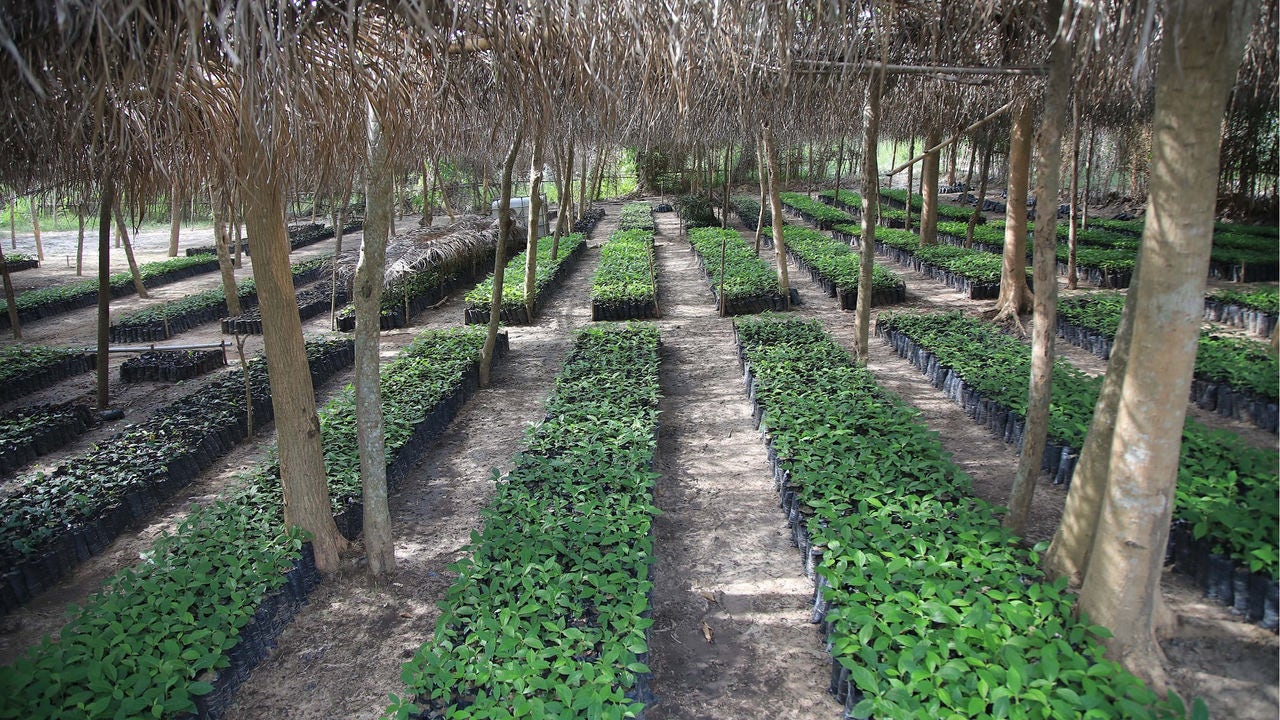
Protecting the Environment
We are working closely with our supply chain partners, including smallholder farmers and their families, to protect the environment and restore ecosystems for a resilient cocoa supply. Our cocoa supply chain efforts are focused on preventing deforestation, promoting agroforestry and protecting biodiversity. For information on our corporate environmental strategy and programming, see our environment page.
Preventing Deforestation
We are working to achieve a deforestation and conversion-free supply chain for cocoa in line with our Deforestation and Conversion-Free (DCF) Policy. We continue to monitor and assess DCF supply chains through our expanded partnership with Earthworm Foundation and Airbus’s Starling satellite monitoring solution across our priority forest-risk commodities, including cocoa. Learn more on the Deforestation & Conversion-Free section on our Environment Page.
Promoting Agroforestry
In partnership with PUR, our agroforestry program supports farm resilience in Cote d’Ivoire and creates businesses in rural areas to create a more resilient supply chain. This project will enable five waves of tree planting with an overall ambition to plant 1.18 million trees by the end of 2028.
Protecting Biodiversity
We support multi-year forest protection activities for the Mabi-Yaya Nature Reserve in Côte d’Ivoire and the Kakum National Park in Ghana. Both are intact forest areas, home to endangered plant and animal species. Read more on our biodiversity page.
